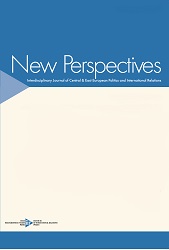Election boycott in a hybrid regime: The case of 2020 parliamentary elections in Serbia
Election boycott in a hybrid regime: The case of 2020 parliamentary elections in Serbia
Author(s): Dejan Bursać, Dušan VučićevićSubject(s): Politics, Government/Political systems, Electoral systems, Present Times (2010 - today), Sociology of Politics
Published by: SAGE Publications Ltd
Keywords: Aleksandar Vučić; boycott; hybrid regime; parliamentary elections; Serbia;
Summary/Abstract: The 2020 elections in Serbia were held on 21st of June, as the first elections in Europe since the outbreak of coronavirus pandemic. The pre-electoral period was marked by the announcement of boycott from opposition, followed by a number of attempts of ruling party to mitigate the potential negative effects. The decision of opposition to restrain from participation came as a response to the long-term accusations of heavily biased electoral and media conditions, which culminated in EU-mediated (but largely unsuccessful) roundtable talks in 2019. On a larger scale, the administration headed by the President Aleksandar Vučić is becoming increasingly authoritarian, with several indices now classifying Serbia as a hybrid regime. As expected, the elections brought a convincing victory to Vučić's Serbian Progressive Party, which won 188 out of 250 seats. Despite the overwhelming triumph, government was formed more than four months later. This paper is contributing to the literature on actors’ strategies in hybrid regimes. Although only short-term effects of the boycott could be assessed, the 2020 elections in Serbia demonstrate that legitimacy of the regime cannot be endangered if the opposition is not supported by international actors, and moreover, that the election results have only strengthened the regime.
- Issue Year: 29/2021
- Issue No: 2
- Page Range: 187-196
- Page Count: 10
- Language: English
- Content File-PDF

